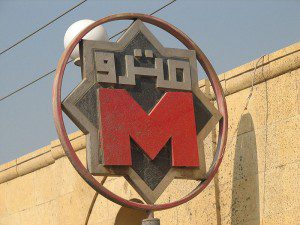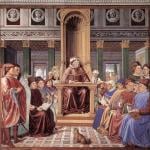
This particular passage occurs only in Matthew and Mark, but it’s in the spirit of John, in a way: Characteristically, John refers to the miracles of Jesus as semeia, or “signs.”
They’re surely not unimportant in themselves, of course, because of the direct impact they have on their recipients. But they’re even more important — certainly for us and for their audience at the time — as pointers to God and reminders of the divine power of Christ.
In Mark 7:34, we have a word quoted from the actual Aramaic spoken by Jesus: Ephphatha, as the King James renders it. “Open!” or “Be open!”
Aramaic is a Semitic language, closely related to Hebrew and Arabic.
A fond memory from my days living in Egypt came when new, European-manufactured cars and trains had just arrived for the metro line that I regularly rode into and out of downtown Cairo. The old trains were run down, and their doors, uselessly long broken, were always agape. These new cars, though, had automatically-opening doors that would engage whenever we pulled into a station.
I remember two little boys standing by one of the doors, watching it intently. As the train slowed to a stop, one of them said Iftah, ya simsim! (“Open sesame!”) To his amazed delight, it obeyed immediately. Just like magic.
Ephphatha and iftah. Closely related imperative verbs. “Open!”












